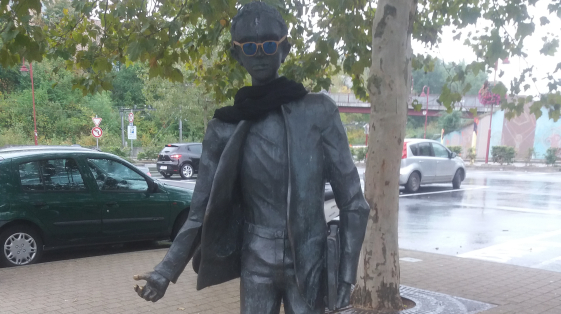Hitchhiking’s 21st Century Simulacra
Zapraszamy na otwarte seminarium naukowe IEiAK. Naszym gościem będzie Patrick Laviolette, Assistant professor in the Department of Sociology of Masaryk University (Czech Republic)

This presentation considers eschatology in the realm of vehicle and road ecologies. Hitchhiking, as a disappearing form of travel in the 21st century (at least in the western world) serves as a type of memento mori in the COVID era. There are a lot of death-memory features in auto-stopping. From vanishing hitchers, through to the uncanny aspects of fear, danger, environmental concerns and the search for liberation from social constraint through adventure – is never very far away from spontaneous roadside lift solicitation. Memento mori is about remembering, about death/eschatology and it is inherently material. An act of the embodied imagination, hitchhiking is itself increasingly memorialised as an endangered transgression and a dying out form of displacement. Hitching is thus a social and spatial memento mori for an era during which it is increasingly present in simulacra representations. Is it therefore useful to ask whether we should see the auto-stop phenomenon as a tristesse topic? The sadness here residing in that it hasn't been adequately studied in the humanities or social sciences. Not, at least, until that time when it might possibly be driven to extinction by the fear that strangers are not just potential axe murderers, but carriers of contagious viral pathogens.
Patrick LAVIOLETTE is the co-editor of Berghahn's periodical AJEC (Anthropological Journal of European Cultures). He is the author of Hitchhiking: Cultural Inroads (Palgrave 2021); Extreme Landscapes of Leisure (Routledge 2016); and is currently trying to write a biography about Raymond Firth. He has worked in the UK, New Zealand, Estonia and since 2021 has taught at Masaryk University in Brno, CZ.


